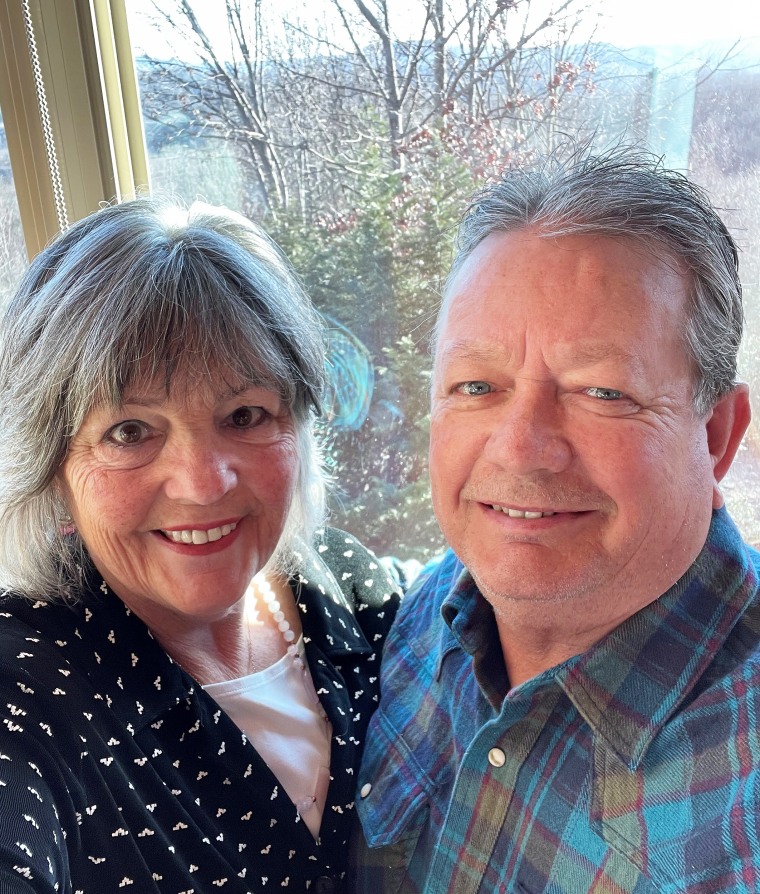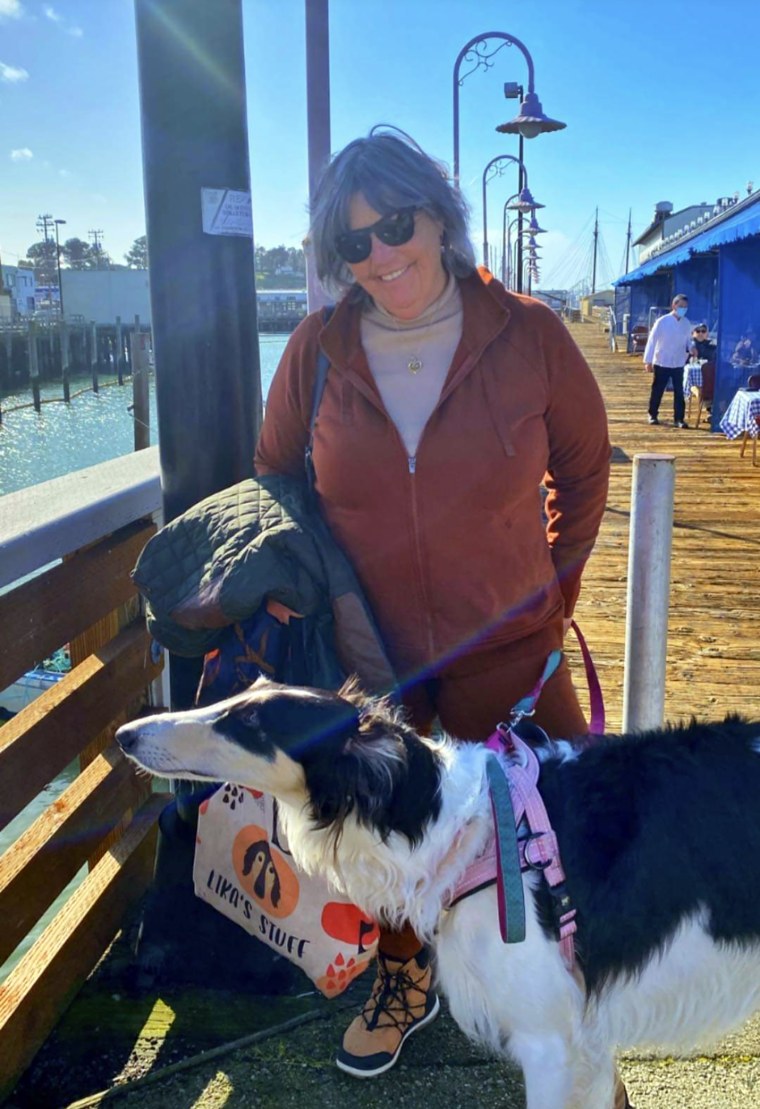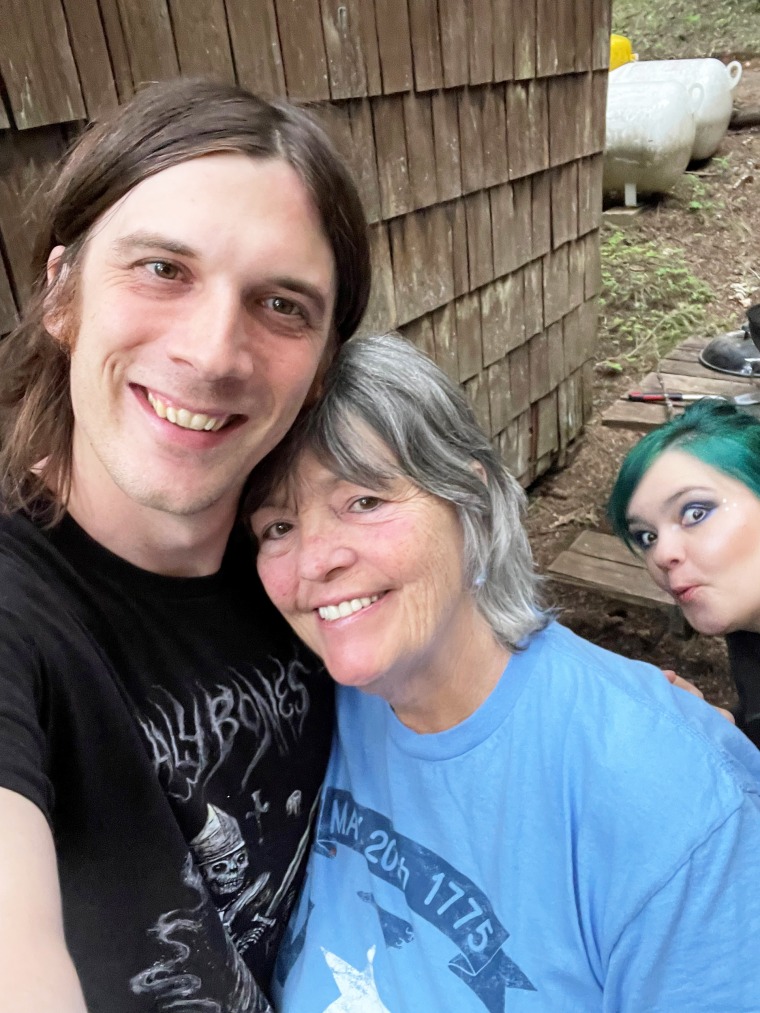Recently, Michelle Pridmore was on a three-mile walk when she started having trouble breathing. She was surprised that she couldn’t handle the leisurely stroll.

“I was getting pain in my chest, not like a heart attack, but my chest was tightening, and I was having a little trouble breathing,” the 67-year-old from Rogue River, Oregon, tells TODAY.com. “I had to sit down numerous times and I kept thinking, ‘What is going on?’” While Pridmore underwent a quadruple bypass in 2006, she has had “zero problems since.” When she visited her doctor, he told her there was nothing he could do for her, and she needed a heart transplant. Stunned, she pursued a second opinion.
“The (second) doctor said, ‘Well you don’t need a heart transplant at this point,” Pridmore says. “It was instantaneous relief.”
A vacation plagued by pain
Earlier this year, Pridmore and her husband were visiting her sister’s family in South Carolina. One day, they took a trip to a local Revolutionary War site. To get there, they needed to walk three miles and Pridmore struggled with the trek.
“After we were forever going up the hill, (I asked), ‘How much further is it?’ and (my sister) goes, ‘We’re almost half way,’” Pridmore recalls. “When we finished the hike, I was just exhausted.”
The next day, they took a tour of a mansion. Pridmore felt fine walking through the house, but when they started exploring the garden, she again experienced some problems. She waited for the rest of the group to finish because she worried what the return of her chest pain meant for the trip.
“I did not tell anyone — not even my husband,” she says. “I didn’t want to spend my vacation at the hospital.”
When she returned home, she visited a cardiologist.
“He said, ‘Well, you have an abnormal heartbeat that I don’t think is anything to worry about this time,’” she says.
But the doctor wanted an echocardiogram of her heart. During that test, Pridmore realized something serious was going on when the tech left the room.
“(The tech) goes, 'You can see you have some problems with the back of your heart, and you can see there’s been some damage done there,’" she says.
Pridmore wasn't entirely surprised the test revealed some damage because of her previous bypass surgery. Her doctor wanted her to do other testing to determine if another bypass surgery could help. But when she had the angiogram, her prognosis changed dramatically.
“(The doctor said) ‘Well, you need a heart transplant. There’s nothing we can do for you here,’” Pridmore says. “I said, ‘Well if I don’t get a heart transplant what happens?’ and he goes, ‘Well you have less than a 50% chance to live 5 more years.’”
Pridmore felt traumatized. She was 66 at the time and didn’t expect her life to be shortened so dramatically. Soon, she went online to understand what undergoing such a procedure would entail. She needed to lose about 23 pounds to qualify and started considering weight loss options.
As she felt overwhelmed by a transplant, her daughter reached out to a family friend who is a pediatrician in Cleveland who recommended that Pridmore get a second opinion from a doctor at the Cleveland Clinic. She was able to virtually see a doctor through The Clinic by Cleveland Clinic, a telehealth platform in partnership with Amwell.

“Immediately, I felt relaxed, and she asked me questions and they knew all the medication was on,” she says. “She said, ‘We need to get you here.’”
Pridmore started to make the travel arrangements.
A second opinion changed everything
Pridmore met with Dr. Maria Mountis, a cardiovascular doctor at the Cleveland Clinic. When Mountis received Pridmore’s information, she was surprised by what she read.
“I said, “OK, this is going to be a really deep visit. Everything I’m looking at doesn’t suggest she needs a transplant,’” Mountis tells TODAY.com. “We went through everything and in reviewing things, things didn’t add up and I said, ‘I really don’t think you need a heart transplant.’”
Mountis says the first thing she noticed was that Pridmore had been prescribed the wrong medications to manage her condition.
“She already had heart disease and needed better care for her heart and needed to have her medications optimized for (her) blood pressure,” Mountis explains. “She needed better blood flow to the heart muscle.”
Her blood pressure was “very very high,” and she was diagnosed with chronic systolic heart failure, but the medications she took did not treat those conditions well. It also appeared that she would benefit from heart catheterization and stents to open up her arteries to improve blood flow. Pridmore went to the Cleveland Clinic for the procedure.
“One of my colleagues, who is an interventional cardiologist, was able to stent the arteries for Michelle,” Mountis says. “With her expertise in stenting the arteries and mine with adjusting her medications, we’ve gotten her back on track.”
They also helped her find a cardiac rehab program close to home so Pridmore can continue her recovery.
“Now her heart muscle is under less stress with the opening of the occluded arteries with stenting and with her blood pressure under better control and being on the best medication to make her feel better and make her live longer,” Mountis says. “My recommendation to her is go now and live your life.”

Recovery and reflection
In cardiac rehabilitation, Pridmore re-gained her strength and is now able to exercise for 45 minutes. She just graduated from rehab and she and her husband plan on joining a gym so she can continue being active. Reflecting on her experience is tough at times.
“I can’t say I don’t have PTSD from this because it was very frightening,” she says.
Pridmore feels great physically and hopes her story inspires other people to advocate for their health or seek a second opinion if they’re worried about their treatment plan.
“Don’t necessarily listen to the first thing you’re told,” she says. “I just couldn’t be happier … my life has been extended for 20 years.”